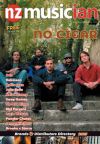Finding Your Voice: Singing and the Unreality of Reality TV
Finding Your Voice: Singing and the Unreality of Reality TV
Nowadays, singing isn’t about what someone sounds like, it’s about what they look like when they sing. It’s about their back-story, presentation, attitude, personality and so many factors unrelated to song-craft and voice-craft. Emphasis on ‘form’ rather than ‘content’ is profoundly damaging our ability to listen, engage with and authentically feel music.
Unreality TV programs like The Voice, NZ’s Got Talent, Idol and X Factor severely confuse singers and audiences. We infrequently hear the full song as it is truncated and chopped into bite size pieces. Singing only the chorus or the ‘big bits’ doesn’t allow performers to tell a story. Audiences don’t experience song development or shaping. In fact, active listening, interpretation or song comprehension isn’t required at all.
Though you mightn’t watch any of the Idol-y programs – even hold a healthy disdain for their drama-led, exploitative ratings-driven humiliation – don’t underestimate their impact. There’s a reality countering the unreality presented on-screen. We’re presented a highly manipulated sound, context and presentation as being ‘real’ when it’s not.
Style and slick production have eclipsed our capacity to hear a song. A recognisably well-defined genre is considerably more important than narrative, concept and meaningful delivery. ‘Sounding like something else’ (preferably something fashionable or trending) is a compliment rather than an insult. The emphasis used to be on originality – only you could represent your unique perspective. Sounding like someone else was considered generic, conservative and everything that punk, soul and rock & roll railed against.
A ‘mono-culturally enforced conformity’ stomps and auto-tunes any difference, dissent, deviance, character, risk and diversity out of existence. It’s hard to discern one voice from another. This may be why visual stimuli are employed to define the artists, more than their songs are.
Too much value is placed on uninformed, unconstructive criticism from ‘judges’ and audiences. It’s presumed that anyone is entitled to an opinion on voice, even with a complete lack of expertise. Anti-expert armchair critics decide someone’s fate in an area they know nothing about. I couldn’t judge a gymnastics competition because I lack knowledge of the criteria and skills being demonstrated. Just because we have ears, doesn’t mean we can use them. Quite the opposite – ‘the eyes have it’. Most listeners don’t listen at all. Deaf people actually make great listeners because they focus intently on what’s being said without being distracted by any other factors.
Non-musicians especially, are unlikely to detect what they like or don’t like about a voice (let alone be able to ‘follow’, read a lyric or provide constructive feedback). It’s confusing for an aspiring singer who becomes unnecessarily concerned about being ‘hypernasal’ or ‘pitchy’.
‘Judges’ use, but don’t know what those terms mean (nor could they accurately assess a voice or how to remedy its actual deficits). I’m forever working with singers who’re recovering from untrue feedback about their voices. Fears are rarely founded on reality and self-diagnosis is difficult. Safe to say: there’s no problem good technique can’t fix!
Unreality TV does nothing to encourage singers to develop their musicality and consider themselves musicians. Rather than front a band, perform live and write songs, singers consider ‘singing to sequenced backing track, karaoke style’ as being the real thing. It’s not. Making singing unrelated to music ‘superficialises’ and devalues the use of voice as an instrument or storytelling agent.
Unreality TV tends to support myths and stereotypes like: having a big voice means you must have a large body; children who sing exceptionally well are rare; singing is difficult and you have to strain and look constipated; you either ‘can’ or ‘can’t’ sing, with no room for improvement; high, long and loud notes are the ultimate achievement; impressing vocally is more important than the song; ‘ugly’ people can’t sing; having an emotive back-story instantly makes you a good singer; good singing is a ‘natural talent’ and that to sing publicly means you’re ‘up yourself’, ‘showing-off’ and inviting people to judge, ridicule and attack you for doing so.
Video actually has killed the radio star! Listening now means ‘watching a video on YouTube’ given that ‘sight’ is the dominant sense for most people. Don’t let your eyes deceive you. The same way JT wanted to bring sexy back, I want to bring listening back – deep listening where we’re able to feel and hear ‘the song’ fully.
Become someone who understands rather than judges. Deliberately, carefully listen to voices – yours and other people’s. Rather than thinking ‘like’ or ‘hate’, instead listen for: breathiness, strain, lack of energy, affected emotion, vocal fry and tight-throated onsets and non speech-like phrasing (in the negative). Listen for what you like: authentic accent, strength, projection, resonance, character, dynamic range and control, fluidity and honesty (in the positive).
Employ other senses as well. Register how your voice feels inside your body. Does it feel easy? Difficult? Controlled? Exhausting? How do other voices make you ‘feel’ kinesthetically? When listening to others, what does your body do? Do you: Grind your teeth? Feel yourself relax and melt? Smile? Furrow your brow? Tighten your belly or shoulders? Want to go drinking with an artist because they seem so interesting? We get so much information from just listening.
Sing regardless of the critique you might receive. Let’s bring the music, the magic and the poetry back into singing. Please listen and care about lyrics and what a song has to say musically. We have the capacity to absorb sensory information on many levels simultaneously.
Singing well is easy, accessible and enjoyable regardless of what the ‘judges’ say.
www.facebook.com/caitlinsmithmusic

